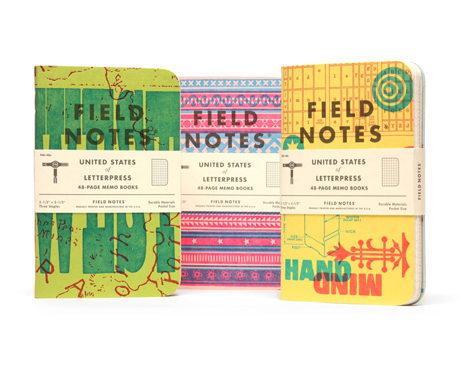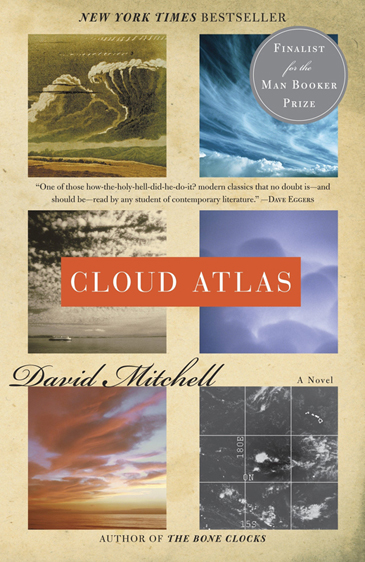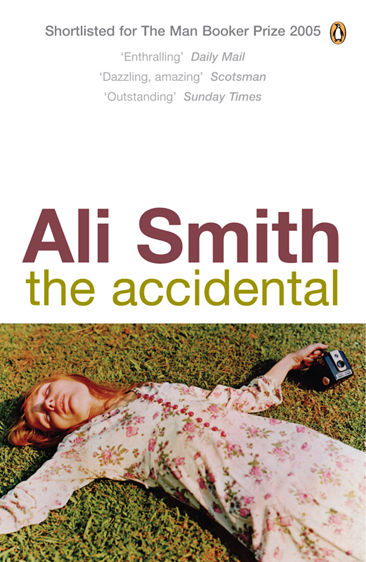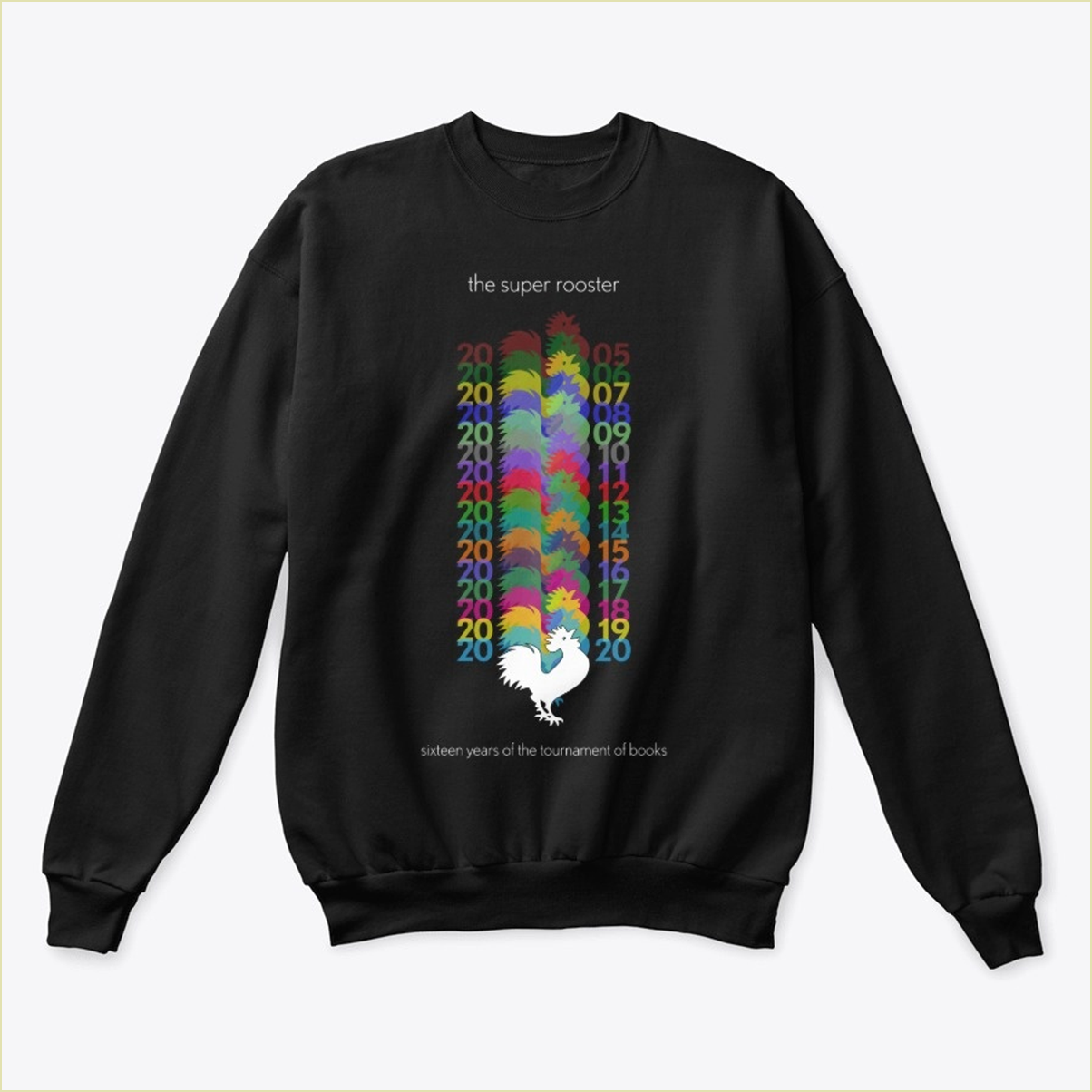-
Oct. 8, 2020
Opening Round
-
David Mitchell
Cloud Atlas
v.
The AccidentalAli Smith
-
Judged by
D.T. Max
Pity the poor gallinaceous reviewer. Fie novel, thou baggy monster! In one corner we have The Accidental, spiky and rich with the smell of life lived. On the other, Cloud Atlas, the wildly imaginative gift book of the decade for those who like their novels millennia-spanning.
The Accidental is of the compact country-house noir genre, a warped novel of domestic life. Meet the Smart family vacationing in Norfolk. Though, yes, intelligent, they are most of all miserable in all the ways families are miserable. Mother Eve is a blocked writer. Husband Michael is a horny professor. Son Magnus is suicidal and as sex-besotted as his dad, and daughter Astrid wants to be more mysterious than she is. No one is talking well to anyone else when they are talking at all. Says Magnus of his family, “Everybody at this table is in broken pieces which won’t go together, pieces which are nothing to do with each other, like they all come from different jigsaws.”
Now conjure a barefoot woman named Amber who wanders into the house with her golden locks and fulfills each of their fantasies—for sex, for meaning, for humiliation, for a listener.
Cloud Atlas is a massive concoction of six nested narratives spread over almost 1,000 years. In it, as with all David Mitchell’s novels, the machinery is part of the fascination and this one works, as best I can figure, like this: In the first section, a voyager sails home from a long nautical journey fighting a mysterious illness caused by a shipmate. In the second, the journal he left behind is read by a manipulative musician in 1930s Belgium while narrating his own visit to a famous composer. In section three, set in 1975, told in the style of a thriller, a young journalist acquires some of the musician’s letters while fending off assassination. And then in section four we’re off to a publisher in Modern Britain considering that thriller for vanity publication as he is confined against his will to a senior home in a nightmarish comedy. And then on to a futuristic Brave New World-ish section where the senior home contretemps is itself a movie watched by a fabricant waitress being exploited by her overseers. All the stories break off and then resume in opposite order after section six, a narrative set in Hawaii, far in the future, where a farming tribe tries to survive the pillaging of cannibalistic neighbors. The centrality of this dystopian section within Cloud Atlas suggests this is our end, the culmination of all the intriguing, exploitation, and hatred of the previous five stories. Oh, most of the protagonists have some sort of comet-shaped birthmark on them, suggesting they are iterations of the same person.
The Accidental is a novel about movement, motive, speech. Its central mystery is what is Amber—good, bad, demonic, saintly, an unpaid (sex) therapist? And if bad, why does her appearance result in some good? Just how messed up can we all be anyway? The Accidental is narrated in the voices of the different characters, but Cloud Atlas is narrated in the voices of different authors. Section one reads like Melville: “By day, my coffin is hot as an oven & my sweat dampens these pages.” Two is like Christopher Isherwood: “Summer has taken a sensuous turn: Ayrs’ wife and I are lovers. Don’t alarm yourself! Only in the carnal sense.” Three reads like Robert Ludlum: “The telephone rings, but Luisa lets it. Javier studies the answering machine as it clunks into action.” You can, as I did, find these examples and many more online, David Mitchell being catnip for the internet.
So, yes, Cloud Atlas is a remarkable work of ventriloquism, and if it were only that I’d give the nod to The Accidental. Ali Smith makes her characters vibrate to their unique internal impulses, and that’s the first thing a novelist needs to do. I liked The Accidental a lot. I liked being in a house with such fucked-up people, saw aspects of myself and my loved ones in their contretemps, just as I would imagine I was meant to do, but I also wanted to get away. I needed some light, some air, a couple of happy people who just wanted to try less hard. They could be even more fucked up as long as they were less aware of it. So much consciousness! So much sadness! Novels are made of conflict but peace should have its say, too. The Accidental was a short book that felt long. Whereas Cloud Atlas, a long book, somehow, flew by. Through all those words, it made me believe in its world(s). Yes, its characters emerge from a cool web of language and you never forget that crystals of cleverness are what they are composed of, but such is the novel’s punch that pretty soon you don’t care. You read on and on thinking, this book is like a miracle. This isn’t life. It’s more interesting than life! The days go by, your kids go to school and come home, a comet streaks across the sky and narrowly misses your own collarbone, and you keep reading. So, I’m sorry, The Accidental, you got pitted against a novel that inhabits the loose, endlessly extendable enclosure that is the novel as fully as any I’ve read, and, really, I find it hard to imagine a book from the last 20 years that could top it.
Match Commentary
By Moti Lieberman & Rosecrans Baldwin
Rosecrans Baldwin: For today’s commentary, we’re joined by Moti Lieberman, a long-time ToB commenter. Moti, can you tell us a little bit about yourself?
Moti Lieberman: Sure! I’m writing from up in Montreal, where I’m the co-owner of the Argo Bookshop (or Librairie Argo Bookshop if you want to be bilingual about it), the oldest indie English-language bookstore in the city. Much of my literary diet since a friend of mine and I bought the store a few years back has been homework one way or another—trying to figure out what we should highlight or even just stock, as well as reading for author events and book clubs and such. And the pandemic hasn’t really changed that; like a lot of indies, when we had to close our doors, we transitioned very quickly to putting as much as we could online. This year, I’ve been running down the TBR pile faster than usual, because I’ve been pouring myself into maintaining the store and its online events and activities, which in part means more reading. At base, I feel like we have a mission to get people books to help them through this often surreal experience, and that’s been driving me.
Rosecrans: That’s wonderful. What do you read for fun?
Moti: I tend to read a lot of Japanese literature as well as sci-fi and fantasy, although over the past 10 years or so, I’ve steadily moved more into the litfic realm. And not to be ingratiating on this point, but a lot of that shift has to do with the Tournament. I first found it in 2012 because, as a Last Samurai stan—
Rosecrans: One of the best novels of the century so far—
Moti: A friend of mine tipped me off when Lightning Rods, Helen DeWitt’s follow-up to The Last Samurai, topped Haruki Murakami’s 1Q84, and then I stuck around because I was encountering exciting new books with thoughtful judgments and discussions around them, and it changed my reading life. I just got really, really pulled in. And even more so when I stopped lurking and finally dipped my toes in the commenting pool a few years later. Um. Let’s just say I’m really excited to be here in the commenting booth?
Rosecrans: Love it! So, what do you think of the judge’s decision today? For Judge Max, Cloud Atlas expresses the capabilities and excellence that the 21st-century novel is capable of better than anything else going—is that something you’d agree with?
Moti: In light of the whole Tournament ahead, I can’t quite agree with Judge Max there, since I wouldn’t put Cloud Atlas at the top of my personal list of Rooster winners.
Rosecrans: Wait, what is your number one?
Moti: Picking my favorite among the champions is very challenging; just looking at the bracket is making me squint with indecision. But I think I’d go with A Visit From the Goon Squad, if really pressed.
Rosecrans: Have you read the two books under review today?
Moti: I read The Accidental in July. I was planning on reading at least some of the winners I hadn’t read yet before this month’s bracket, and after hearing the So Many Damn Books podcast episode about it, I bumped it up to the top of my list. Cloud Atlas got bumped to the top in turn when I was assigned this commentary. So I’ve read both quite recently.
Anyway, I will agree Mitchell is being very ambitious and adventurous with his story structure and format, and lands it for the most part. It throws together an epistolary novel, a mystery novel, an interview, and more, in a way that feels surprisingly cohesive even with all the interruptions in the tales. I’d finish a section and see what kind of story Mitchell was bringing out, and then after a bit I’d fall into the new voice and structure, even if I still wanted more of the previous life still. And then the best part was, I still got those back halves in the end! I knew that about the structure before starting the book, but even if I didn’t, I think I’d have had to flip ahead to see the chapter headings. Otherwise, I’d have been too worried about losing half the story.
Here’s the thing for me: The judge’s criteria are perfectly fine ones! I don’t mind adopting them myself. But if I were judging this pair of books by those measures, I’d have gone with The Accidental.
Rosecrans: Ooh, interesting. How so?
 Field Notes® Limited Edition for the Fall of 2020 is the “United States of Letterpress,” which features the work of nine independent letterpress shops from across America. This series demonstrates a wide array of craftsmanship, ingenuity, and love for the age-old and tactile process of letterpress printing. Check the the short documentary film too.
Field Notes® Limited Edition for the Fall of 2020 is the “United States of Letterpress,” which features the work of nine independent letterpress shops from across America. This series demonstrates a wide array of craftsmanship, ingenuity, and love for the age-old and tactile process of letterpress printing. Check the the short documentary film too.Moti: Formally, it’s also very ambitious. Smith’s multi-POV story does a great job of getting in the heads of all these family members during their eventful summer holiday. Judge Max mentions that each person in the Smart family narrates their own sections, but it’s not just that—the format, with the interviews and poetry, feels like it’s trying to stretch out the novel format, too, in ways that are incisive about how the characters are each experiencing their own private Norfolk. And Amber herself and her kaleidoscopic presence, the way everyone saw her so differently while she simultaneously felt so blunt and honest in so many of her actions, even the ambiguity of the book on who she was and what she even did in the story, worked really well for me.
Or maybe the thing is actually this: In the judgment, Judge Max says when he was reading Cloud Atlas, he felt like it wasn’t life; it was more interesting than life. He sounds as if he found Cloud Atlas to be more engrossing, and that The Accidental felt longer than it actually was. I had the opposite reaction: I snarfed down the shorter book, and the longer one… well, it took a while to get into a new section sometimes, and it was easier to put down for me. On that criterion, too, I’d give it to The Accidental. But what criteria would you take to these two books?
Rosecrans: Honestly, I’m not sure. I haven’t reread either book since they came out, but I remember adoring both. When I read Cloud Atlas, I’d already read Mitchell’s previous novel Number9Dream, and as a longtime Murakami completist, I found it way too influenced. But Cloud Atlas was such a leap forward, and such fun to read, I was thrilled. The Accidental was my first time reading Ali Smith. I loved it for its smallness, its density of observation, its lightness in characterization. Both books are smart, stylish, engrossing. For criteria, it might come down to scale for me. These two are pretty different. One is domestic. One is time- and globe-trotting. Do you think that influenced the judge’s decision?
Moti: I think it’s really a big part of the decision here. Saying Cloud Atlas best exemplifies a book that fully rests in the broad frame of A Novel looks to me like giving it points for how far Mitchell pushes things temporally and spatially. Both books are playing with formats and time jumps and different points of view. But Cloud Atlas is taking those out way further, around the world to different places, across long stretches of time. And not only that, Mitchell’s putting in the research and world-building to make each of those spaces feel real. Smith is making a dysfunctional English family summer vacation and return to life afterwards seem real. I think she does it brilliantly, and I preferred her book, but the scale is definitely different. If you’re really synching with what Mitchell is playing at, I can see just how explosive the book would be for you. But it’s a classic Rooster problem—
Rosecrans: Totally!
Moti: Which do you prefer, the big book doing a lot of things, or the smaller one attempting less but perhaps executing more cleanly?
Rosecrans: Exactly. The big dumb shaggy dog or the sly, observant cat. And I love both, at least when it comes to books. The judge charges Mitchell with “ventriloquism,” though as a compliment. Let me go back to my invocation of Murakami: Number9Dream, Mitchell’s novel before Cloud Atlas, was knocked at publication for edging close to pastiche. Does a facility for homage bother you?
Moti: Not in and of itself; it depends what the aims are. If you’re not trying to break any ground or stretch out the material, then the new work will probably just feel stale and derivative. And I appreciate a book that is trying to do something wholly new. But really, so much of literature is in conversation with other books and other authors, and sometimes the best way to make the point you want to make is to gesture at something you found interesting and say “like that, but with robots/more feminism/soulmates/etc.” The similarities can help serve as a bridge for readers into your writing and what you want to do with it. All of which may be a long way around of saying that I think fanfic is legit and some very interesting literary work gets done there.
Rosecrans: That is what we call a hot take.
Moti: In this particular case, though, I think it’s precisely that Mitchell is doing something formally interesting with story structure that makes the homages he’s trying actually hit better. I doubt I’d have enjoyed six novellas laid out end on end, where he does his best Melville, and then his best Isherwood, and on down the line. I definitely don’t think the individual stories laid out that way, published separately and read on their own, would be something I’d want to read. But it’s juxtaposing the different styles, seeing the connections, building the tension with the broken format, and then letting the back halves heave each of their novella’s drops into that great ocean of story that makes the overall book satisfying, when each of the parts individually would fail.
I have to say, though, I didn’t see each section as a specific authorial homages so much as I thought they were stylistic homages of a sort, but maybe I haven’t read enough of the relevant authors. Did you find that you were pinning each section to a different author, as Judge Max did?
Rosecrans: Not really. And all credit to Cloud Atlas, in my opinion, for the “ventriloquism.” I mean, the voices in Mitchell’s 2006 book Black Swan Green are luminescent.
Last question: Doing a Rooster of Roosters brings up the question of what makes literature lasting. For you, what does it take for a novel to stay great?
Moti: Oh man. Asking the big questions for Day One of the Super Rooster, huh? Well. This year, I’ve been doing a group readthrough of The Tale of Genji, purportedly the world’s first novel. And while the thousand-year-old life of the Heian Japan court and its mores and customs can seem alien and sometimes grotesque, the book remains engrossing and worth discussing because of the clearly recognizable humanity of the characters it portrays. They may be in a different world, but they’re rich, complex people.
So I think that’s my answer: A novel needs deep humanity, as flawed and weird as we can be, to stay great. If a novel is of the moment, well, the moment passes, a fact we should be fervently glad for. If you inaugurate a cool new plot trick, well, within a century, other authors in the great literary conversation will have stolen it, improved it, deconstructed it, hashed it out in a thousand different ways, leaving the original classic little more than the husk of a historical relic. But if you’ve got real humanity? If you capture something tricky and elusive and beautifully recognizable about who we are? Well, for better or worse, even a millennium doesn’t really change us. That’s what’ll bring us back.
Rosecrans: And that is what we call well put. Thanks, Moti! We’ll see everybody in the comments, then back here tomorrow for Carolyn Kellogg judging The Road and The Brief Wondrous Life of Oscar Wao.
New Super Rooster merch is now available at the TMN Store. As a reminder, Sustaining Members receive 50 percent off everything in our store. To find out why we’re asking for your support and how you can become a Sustaining Member, please visit our Membership page. Thank you.
Welcome to the Commentariat
Population: You
To keep our comments section as inclusive as possible for the book-loving public, please follow the guidelines below. We reserve the right to delete inappropriate or abusive comments, such as ad hominem attacks. We ban users who repeatedly post inappropriate comments.
- Criticize ideas, not people. Divisiveness can be a result of debates over things we truly care about; err on the side of being generous. Let’s talk and debate and gnash our book-chewing teeth with love and respect for the Rooster community, judges, authors, commentators, and commenters alike.
- If you’re uninterested in a line of discussion from an individual user, you can privately block them within Disqus to hide their comments (though they’ll still see your posts).
- While it’s not required, you can use the Disqus
tag to hide book details that may spoil the reading experience for others, e.g., “ Dumbledore dies .” - We all feel passionately about fiction, but “you’re an idiot if you loved/hated this book that I hated/loved” isn't an argument—it’s just rude. Take a breath.




